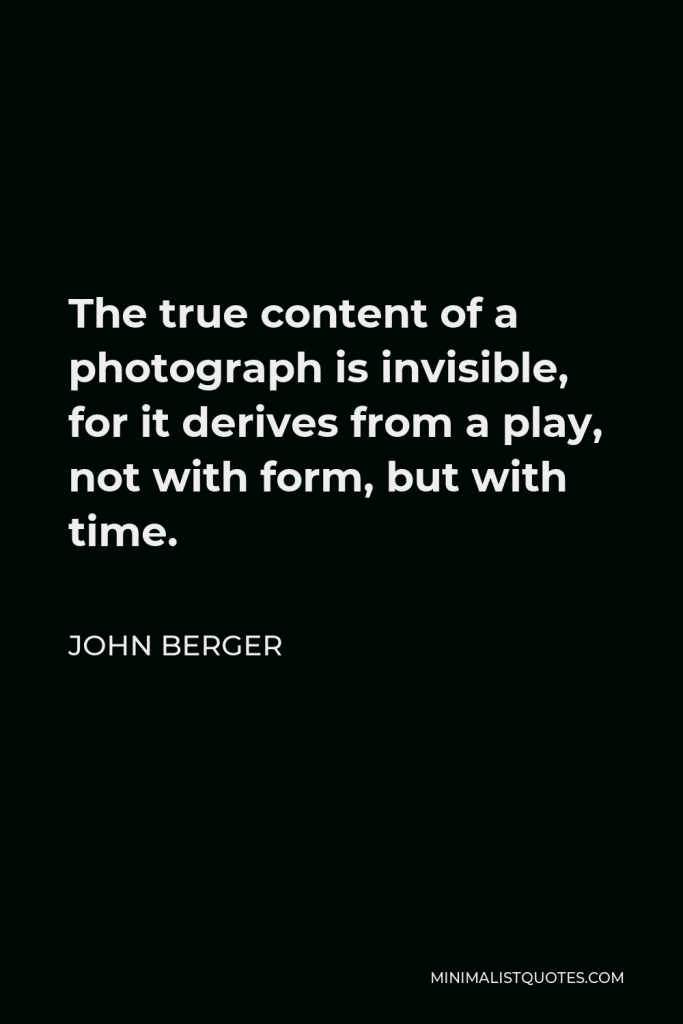She is meant to imagine herself transformed by the product into an object of envy for others, an envy which will then justify her loving herself.
JOHN BERGERDeep in the nature of theatre is a sense of ritual. The cinema, by contrast, transports its audience individually, singly, out of the theatre towards the unknown.
More John Berger Quotes
-







-







All photographs are there to remind us of what we forget. In this – as in other ways – they are the opposite of paintings.
JOHN BERGER -







To be desired is perhaps the closest anybody in this life can reach to feeling immortal.
JOHN BERGER -







Compassion opposes this order and is therefore best thought of as being in some way supernatural.
JOHN BERGER -







Glamour cannot exist without personal social envy being a common and widespread emotion.
JOHN BERGER -







Drawing is a way of coming upon the connection between things, just like metaphor in poetry reconnects what has become separated.
JOHN BERGER -







The true content of a photograph is invisible, for it derives from a play, not with form, but with time.
JOHN BERGER -







If every event which occurred could be given a name, there would be no need for stories.
JOHN BERGER -







You cant draw it for others. You can try, of course, but it doesn’t work. People obeying rules laid down my somebody else is not the same thing as respecting life. And if you want to respect life, you have to draw a line.
JOHN BERGER -







You are observed with interest but you do not observe with interest – if you do, you will become less enviable. In this respect the envied are like bureaucrats; the more impersonal they are, the greater the illusion (for themselves and for others) of their power.
JOHN BERGER -







It is comparatively easy to achieve a certain unity in a picture by allowing one colour to dominate, or by muting all the colours.
JOHN BERGER -







The strange power of art is sometimes it can show that what people have in common is more urgent than what differentiates them. It seems to me it’s something that theatre can do, but it’s rare; it’s very rare.
JOHN BERGER -







To be naked is to be oneself.
JOHN BERGER -







Photography, because it stops the flow of life, is always flirting with death.
JOHN BERGER -







Those who first invented and then named the constellations were storytellers.
JOHN BERGER -







All creation is in the art of seeing.
JOHN BERGER







